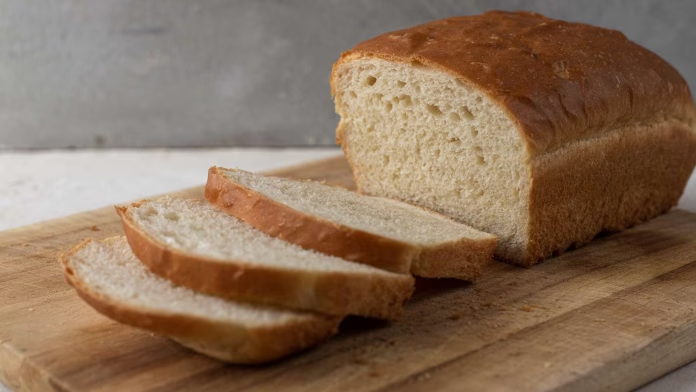Bread is a staple food in many cultures around the world. It is a carbohydrate-rich food that is often eaten as a part of a meal. While bread can be a satisfying and filling food, it is not uncommon to feel tired or sluggish after eating it. Bread is a convenient and common food in many households, especially for breakfast when there is little time to prepare a meal. However, some people experience lethargy or fatigue after eating bread and are unsure why.
In this article, we will explore the reasons why you may feel tired after eating bread.
Bread and Blood Sugar Levels
One of the main reasons why bread can make you feel tired is because it can cause your blood sugar levels to spike and then crash. Bread is made up of carbohydrates, which are broken down into glucose (sugar) in the body. When you eat bread, your body rapidly absorbs the glucose from the bread into your bloodstream, causing a spike in your blood sugar levels.
In response to the spike in blood sugar, your body releases insulin, a hormone that helps to move the glucose from your bloodstream into your cells, where it can be used for energy. However, if too much insulin is released, it can cause your blood sugar levels to drop too low, which can leave you feeling tired, sluggish, and craving more carbohydrates.
This phenomenon is commonly referred to as a “sugar crash” or “carbohydrate crash.” It occurs when your body’s insulin response to a spike in blood sugar levels causes your blood sugar to drop below normal levels, leaving you feeling tired and lethargic.
The Glycemic Index of Bread
The glycemic index (GI) is a measure of how quickly carbohydrates are digested and absorbed into the bloodstream. Foods with a high GI value are quickly digested and absorbed, causing a rapid rise in blood sugar levels, while foods with a low GI value are digested and absorbed more slowly, causing a slower and more sustained rise in blood sugar levels.
Most bread has a high GI value, meaning that it is quickly digested and absorbed into the bloodstream, causing a rapid rise in blood sugar levels. This can lead to a sugar crash and leave you feeling tired and sluggish.
However, not all bread is created equal when it comes to GI. Whole-grain breads, for example, have a lower GI value than white bread, as they are digested and absorbed more slowly due to their higher fiber content. This slower and more sustained rise in blood sugar levels can help to avoid a sugar crash and keep you feeling more energized.
Gluten and Bread
Gluten is a protein found in wheat, barley, and rye. It is what gives bread its chewy texture and allows it to rise when baked. For some people, however, gluten can cause digestive problems and other symptoms.
One condition that is associated with gluten sensitivity is celiac disease. Celiac disease is an autoimmune disorder that affects the small intestine, causing damage to the lining of the intestine when gluten is consumed. This damage can lead to malabsorption of nutrients and a variety of symptoms, including fatigue, headaches, and digestive issues.
Another condition associated with gluten sensitivity is non-celiac gluten sensitivity (NCGS). NCGS is a condition in which people experience symptoms similar to celiac disease when they consume gluten, but they do not have the same intestinal damage that is seen in celiac disease.
While the exact cause of NCGS is not known, some experts believe that it may be related to a sensitivity to other components of wheat and not just gluten. Some people with NCGS may also experience fatigue and other symptoms after consuming bread and other wheat-containing products.
FODMAPs and Bread
FODMAPs are a group of fermentable carbohydrates that are poorly absorbed in the small intestine. They can cause digestive symptoms in some people, particularly those with irritable bowel syndrome (IBS).
Wheat-containing products, including bread, are high in FODMAPs, particularly
fructans. This means that for people with IBS or other digestive issues, consuming bread may lead to symptoms such as bloating, gas, and abdominal pain, which can also contribute to feelings of fatigue and lethargy.
Additionally, avoiding FODMAPs may also lead to a reduction in symptoms such as fatigue, as the digestive issues caused by these carbohydrates can often be draining and tiring for the body to deal with.
Other Factors to Consider
While blood sugar levels, GI, gluten, and FODMAPs are some of the main factors that can contribute to feelings of tiredness after eating bread, there are other factors to consider as well.
For example, some bread may contain additives and preservatives that can cause digestive issues and other symptoms. Additionally, overeating or eating too quickly can also contribute to feelings of fatigue after eating.
It is also worth noting that bread is often consumed as a part of a larger meal, which can contribute to feelings of tiredness as well. Eating a large meal, especially one that is high in carbohydrates, can cause blood sugar levels to spike and then crash, leading to a feeling of tiredness and lethargy.
While bread can be a delicious and satisfying food, it is not uncommon to feel tired or sluggish after eating it. This can be due to a variety of factors, including blood sugar levels, GI, gluten, FODMAPs, and other additives and preservatives.
If you find that you consistently feel tired after eating bread, it may be worth experimenting with different types of bread or cutting back on your consumption of bread altogether. Additionally, it is always a good idea to listen to your body and pay attention to how different foods make you feel so that you can make informed decisions about what to eat and what to avoid.





